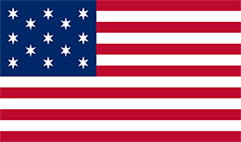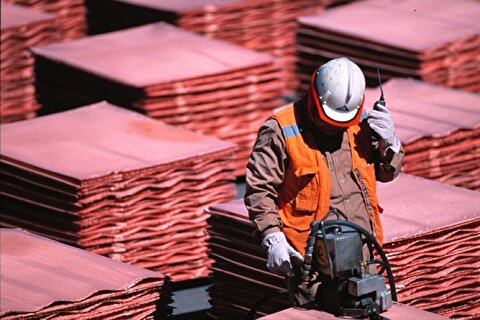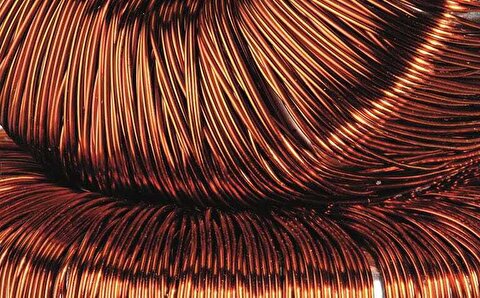
US steel tariff hike irrelevant to Turkish scrap price

US president Donald Trump on 14 October raised the US tariff on Turkish steel imports back to 50pc, double the prior rate of 25pc, as part of a series of sanctions in response to Turkey's military offensive in northern Syria.
The move triggered widespread expectation, particularly in Asia-Pacific, that limiting Turkey's ability to sell steel to the US would make a sizeable dent in Turkish steel export volumes and demand for scrap, and consequently send the Turkish scrap import price back downward.
Buyers in Taiwan, India and Pakistan were all heard to have cited the higher Turkish steel import tariff as a pressuring factor on global scrap prices this week.
But a surge of Turkish deals were subsequently concluded on 16-18 October at higher prices than previous transactions. The Argus HMS 1/2 80:20 cfr Turkey assessment rose to $244.30/t today, up by $8/t from when Trump announced the new higher Turkey steel tariff.
The absence of a negative effect on the scrap price from the higher US import tariffs should not have come as a surprise to any observer of Turkey's rebar sales to the US, both this year and over the past three years.
Turkish rebar exports to the US have collapsed this year, falling to just 38,327t in the January-August period, official trade data show. This is barely 10pc of the 305,000t exported from Turkey to the US over the same period in 2018.
Part of that collapse can be attributed to the fact that the US Section 232 tariff on Turkish steel imports was increased to 50pc from 25pc in August 2018, before falling back to 25pc in May ahead of the most recent re-escalation.
But the move back to 25pc in May did not bring any notable surge in Turkish rebar shipments to the US. Turkey exported approximately 20,000t of rebar to the US in the May-August period, trade data show, accounting for just 0.96pc of the 2.08mn t total Turkish rebar exports during that time.
Exports to the US did pick up slightly in August to 19,840t and Argus has tracked a minimum of 38,000t shipped to the US since the beginning of September, but these figures still account for only a tiny percentage of overall Turkish rebar exports.
The reason that Turkish rebar exports to the US did not recover even when the Section 232 tariff dropped to 25pc in May is simple: the tariff is still prohibitively high for Turkish mills to sell to the US except in circumstances where seaborne scrap and rebar prices fall extremely low relative to the US domestic steel and scrap market.
Additionally, the Section 232 tariff is levied on top of existing countervailing and anti-dumping duties that the US applied to the largest Turkish exporters to the country in 2017. Turkish steelmakers are subject to combined anti-dumping (AD) and countervailing (CV) duties of 8-21.6pc even before the main 232 tariff is taken into consideration.
So the viability of export at a 25pc or 50pc Section 232 tariff is not markedly different. Turkish steelmakers might have had a greater opportunity to export with a 25pc tariff in places were the US steel market is still running as hot as it was last year, but that boom has sharply reversed this year.
The initial implementation of AD and CV duties in 2017 already significantly reduced Turkish rebar exports to the US prior to the introduction of the Section 232 tariff. Turkey exported 1.38mn t to the US in 2016, the last year before major trade measures were introduced. In 2017, that total more than halved to 664,000t, before halving again to 306,000t in 2018.
The US was Turkey's largest rebar export market in 2015, accounting for 19.7pc of total exports. By 2017, it was the third-largest export market, falling to 11.74pc of all exports, and in 2018, its share had fallen to 4.93pc. Exports to the US in January-August this year account for just 1pc of all Turkish overseas rebar sales.
In this context, removal of any lingering access to the US is of virtually no consequence to Turkish rebar producers, as they have now long since abandoned it as a core export destination. That the higher tariff announced this week could have a material impact on scrap prices is an outdated view of Turkey's export environment.


Newmont nets $100M payment related Akyem mine sale

First Quantum scores $1B streaming deal with Royal Gold

Caterpillar sees US tariff hit of up to $1.5 billion this year

Gold price rebounds nearly 2% on US payrolls data

Copper price collapses by 20% as US excludes refined metal from tariffs

St Augustine PFS confirms ‘world-class’ potential of Kingking project with $4.2B value

B2Gold gets Mali nod to start underground mining at Fekola

Goldman told clients to go long copper a day before price plunge

Copper price posts second weekly drop after Trump’s tariff surprise

Codelco seeks restart at Chilean copper mine after collapse

US slaps tariffs on 1-kg, 100-oz gold bars: Financial Times

BHP, Vale offer $1.4 billion settlement in UK lawsuit over Brazil dam disaster, FT reports

NextSource soars on Mitsubishi Chemical offtake deal

Copper price slips as unwinding of tariff trade boosts LME stockpiles

SAIL Bhilai Steel relies on Danieli proprietary technology to expand plate mill portfolio to higher steel grades

Alba Discloses its Financial Results for the Second Quarter and H1 of 2025

Australia weighs price floor for critical minerals, boosting rare earth miners

Australia pledges $87M to rescue Trafigura’s Nyrstar smelters in critical minerals push

Fresnillo lifts gold forecast on strong first-half surge

US slaps tariffs on 1-kg, 100-oz gold bars: Financial Times

BHP, Vale offer $1.4 billion settlement in UK lawsuit over Brazil dam disaster, FT reports

NextSource soars on Mitsubishi Chemical offtake deal

Copper price slips as unwinding of tariff trade boosts LME stockpiles

SAIL Bhilai Steel relies on Danieli proprietary technology to expand plate mill portfolio to higher steel grades

Alba Discloses its Financial Results for the Second Quarter and H1 of 2025

Australia weighs price floor for critical minerals, boosting rare earth miners

Australia pledges $87M to rescue Trafigura’s Nyrstar smelters in critical minerals push

Fresnillo lifts gold forecast on strong first-half surge














